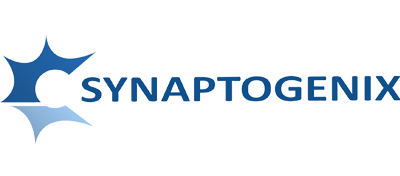Neurotrope Announces Corporate Update and Reports Second Quarter 2019 Financial Results
— Concluded Data Collection in Confirmatory Phase 2 Study of Bryostatin-1 in Moderate to Severe Alzheimer’s Disease; Top-line Data Expected During the Third Quarter of 2019 —
— Ended Second Quarter 2019 with Cash and Cash Equivalents of $21.2 Million —
NEW YORK, Aug. 5, 2019 /PRNewswire/ — Neurotrope, Inc. (Nasdaq:NTRP), a clinical-stage biopharmaceutical company developing novel therapies for neurodegenerative diseases, including Alzheimer’s disease (AD), today provided an update on clinical and corporate developments, including its ongoing confirmatory Phase 2 study of Bryostatin-1 in moderate to severe AD, and announced financial results for the second quarter ended June 30, 2019.
“The promising data from our previous exploratory Phase 2 trial showed significant improvements in Severe Impairment Battery (SIB) scores for patients in the 20µg Bryostatin-1 dose group not on memantine, an NMDA antagonist. These results may indicate a potential reversal of disease progression in patients with moderate to severe AD, suggesting the potential to translate Bryostatin’s neurorestorative properties into the clinic. We look forward to reporting top-line data from our confirmatory Phase 2 study during the third quarter of 2019, and to moving bryostatin forward in the clinic,” stated Dr. Charles S. Ryan, Neurotrope’s Chief Executive Officer.
Dr. Daniel Alkon, Neurotrope’s President and Chief Scientific Officer, stated: “Our confirmatory Phase 2 trial is based on compelling clinical data that was recently published in the Journal of Alzheimer’s Disease.1 Bryostatin regulates the NMDA receptor through PKC activation. Thus, the concurrent use of an NMDA antagonist, which inhibits activity at the receptor, may block the beneficial effects of bryostatin a potential eliminated from the current trial design. Moreover, the consistency observed in 94% of those patients not taking memantine further supports our current study and underscores the transformative potential of bryostatin as a treatment for AD.”
Dr. Marwan Sabbagh, Director of the Cleveland Clinic Lou Ruvo Center for Brain Health and member of Neurotrope’sScientific Advisory Board, noted: “Bryostatin has a novel mechanism of action, restoring synaptic networks, with some encouraging data published earlier this year. I believe that positive results from the current study would be a significant advancement for patients with moderate to severe Alzheimer’s Disease. I look looking forward to seeing the results of the Confirmatory Phase 2 study in the near future.”
Clinical Development Highlights
- On July 15, 2019, Neurotrope concluded data collection in its confirmatory Phase 2 double blind, placebo controlled clinical trial of Bryostatin-1 in the treatment of patients with moderately severe to severe AD who are not currently taking memantine. Previously, on March 13, 2019, the Company announced dosing of the final patient in the study. A total of 108 patients were enrolled into the study, and top-line data is expected during the third quarter of 2019.
Corporate Announcements
- In early April 2019, Neurotrope appointed Dr. Michael Ciraolo as general counsel and chief operating officer.
Second Quarter 2019 Financial Results (Unaudited)
As of June 30, 2019, the Company had approximately $21.2 million of cash and cash equivalents. The Company estimates that, contingent upon future product development plans, it has sufficient capital to fund operations through at least the next two years.
About Neurotrope
Neurotrope is at the forefront of developing a new approach to combating AD and other neurodegenerative diseases. The Company’s world-class science offers the potential to realize a paradigm shift to overcome one of today’s most challenging clinical problems — finding a way to slow or even prevent the progression of AD.
In addition to the Company’s Phase 2 trial of Bryostatin-1 in advanced AD, Neurotrope has also conducted preclinical studies of Bryostatin-1 as a potential treatment for rare diseases and brain injury, including Fragile X syndrome, multiple sclerosis, stroke, Niemann-Pick Type C disease, Rett syndrome, and traumatic brain injury. The U.S. Food and Drug Administration has granted Orphan Drug Designation to Neurotrope for Bryostatin-1 as a treatment for Fragile X syndrome. Bryostatin-1 has already undergone testing in more than 1,500 people in cancer studies, thus creating a large safety data base that will further inform clinical trial designs.
Please visit www.neurotrope.com for further information.
Forward-Looking Statements
Any statements contained in this press release that do not describe historical facts may constitute forward-looking statements. These forward-looking statements include statements regarding the Phase 2 study and further studies, and continued development of use of Bryostatin-1 for AD and other cognitive diseases. Such forward-looking statements are subject to risks and uncertainties and other influences, many of which the Company has no control over. There can be no assurance that the clinical program for Bryostatin-1 will be successful in demonstrating safety and/or efficacy that we will not encounter problems or delays in clinical development, or that Bryostatin-1 will ever receive regulatory approval or be successfully commercialized. Actual results and the timing of certain events and circumstances may differ materially from those described by the forward-looking statements as a result of these risks and uncertainties. Additional factors that may influence or cause actual results to differ materially from expected or desired results may include, without limitation, the Company’s inability to obtain adequate financing, the significant length of time associated with drug development and related insufficient cash flows and resulting illiquidity, the Company’s patent portfolio, the Company’s inability to expand the Company’s business, significant government regulation of pharmaceuticals and the healthcare industry, lack of product diversification, availability of the Company’s raw materials, existing or increased competition, stock volatility and illiquidity, and the Company’s failure to implement the Company’s business plans or strategies. These and other factors are identified and described in more detail in the Company’s filings with the Securities and Exchange Commission, including the Company’s Annual Report on Form 10-K for the year ended December 31, 2018, and Quarterly Report on Form 10-Q for the quarter ended March 31, 2019. The Company does not undertake to update these forward-looking statements.
Contact information:
Investors and Media
Sam Martin and Ryan Baker
Argot Partners
212-600-1902
Public Relations
Susan Roberts
sr@roberts-communications.com
202-779-0929
1 Farlow, M., Thompson, R. E., Wei, L. J., Tuchman, A. J., Grenier, E., Crockford, D., … Moreira, P. (2019). A randomized, double-blind, placebo-controlled, phase II study assessing safety, tolerability, and efficacy of bryostatin in the treatment of moderately severe to severe Alzheimer’s disease. Journal of Alzheimer’s Disease, 67(2), 555-570. https://doi.org/10.3233/JAD-180759








